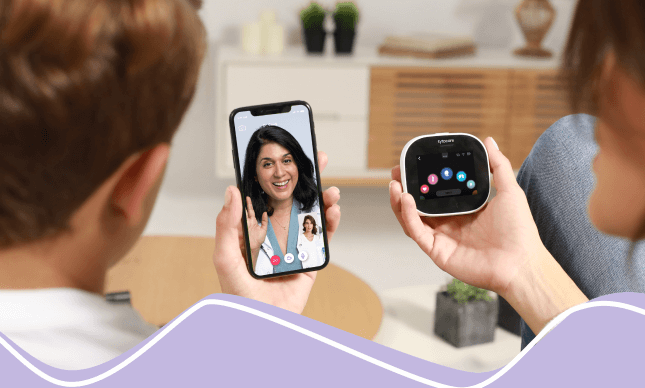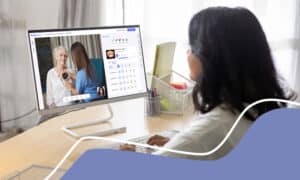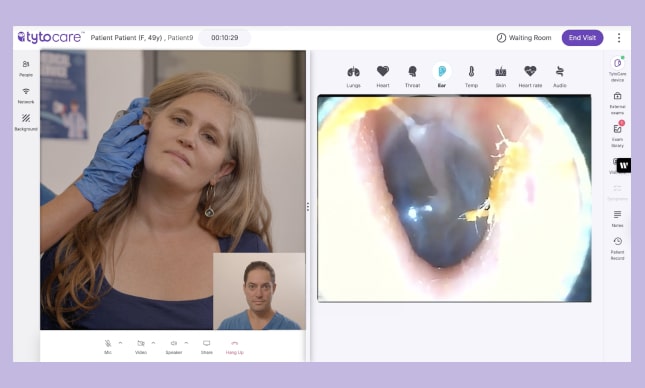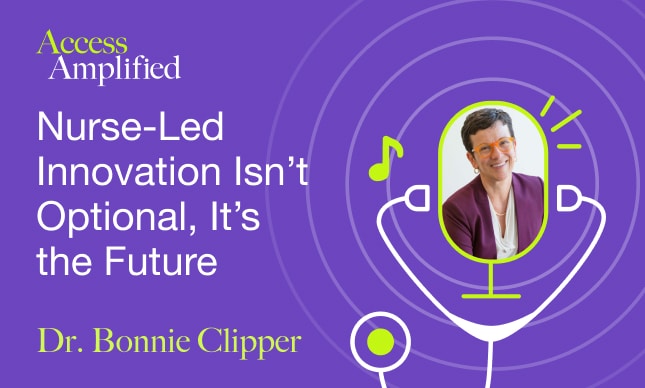The Perfect Pairing: Virtual Healthcare and Artificial Intelligence

AI is rapidly transforming our world. How can AI be used to improve healthcare?
The promise of AI in healthcare
Recent research by McKinsey and Harvard shows that artificial intelligence could save the US up to 5-10% a year if it is more widely adopted in healthcare. This translates to between $200 and $360 billion saved annually. The potential cost savings in healthcare through AI can be attained through currently-available technologies, without compromising healthcare access or quality.
The impact of AI in healthcare goes beyond the financial. AI can greatly improve quality of care, by mitigating disease risk, improving imaging analysis, outlining preventive care plans, and more. In hospital settings, AI can be used to better detect adverse events and optimize operating rooms.
Healthcare providers can leverage AI to improve continuity of care, diagnose more accurately, minimize the need for costly diagnostic procedures, and prevent readmissions. AI can also streamline administrative tasks like claims processing and prior authorization, reducing the risk of error and freeing provider time for other tasks.
Low levels of adoption
Despite the potential benefits of the adoption of AI in healthcare, it has not been widely embraced by healthcare providers as of yet. There are several possible reasons:
- Providers may find it difficult to trust AI’s abilities in clinical operations, preferring to do things the traditional way.
- Providers may be wary of trusting innovations they don’t fully understand
- Patients and providers may question whether AI could hinder the patient-provider relationship by decreasing face-to-face interactions and removing the human touch from care.
- Providers may not be aware of the ways in which AI can streamline their work processes and improve patient health outcomes.
- Patients and providers may be concerned about AI’s accuracy.
- Some AI tools are costly, preventing providers from being able to implement and maintain them due to a lack of financial resources. The benefits of adopting AI take time, leading to skepticism about AI’s return on investment.
- Lack of data standardization can make it challenging to integrate AI into existing healthcare workflows.
- Patients and providers may be concerned about privacy and security regarding AI integration in healthcare.
To promote adoption of AI in healthcare and build trust in its capabilities, providers should receive transparent information about AI and comprehensive training in how to implement it successfully. They should be offered AI solutions that are competitively priced and easily scalable.
Complicated tools risk adding to the workload of already-strained providers, so AI solutions should be practical and easy to integrate. AI in healthcare should focus on straightforward solutions with proven results for improving care quality and generating ROI.
AI and virtual care
The ideal way for AI to further ease into healthcare is through virtual care solutions. Virtual care already incorporates AI in several ways. TytoCare’s AI-enabled telehealth solution greatly enhances the remote care experience across acute, chronic, and preventive care modalities:
AI-guided exams
TytoCare uses AI guidance to support patients in conducting exams independently. It directs patients as to where exactly to place the stethoscope, indicates when images of the tympanic membrane are captured successfully, and more. TytoCare’s AI is user-friendly yet innovative and robust, ensuring patients can conduct remote care visits easily and accurately.
Clinician support
AI-powered diagnostics support provider diagnoses. TytoCare is able to accurately detect lung wheezes, tonsillar exudates, and more. This diagnostic accuracy facilitates TytoCare’s 98% visit resolution rate.
Data-driven decision-making
Healthcare generates large volumes of data. TytoCare’s data repository uses AI to ensure that this data can be utilized by providers for accurate insights and intelligent clinical decisions.
EHR integration
TytoCare integrates seamlessly with electronic health records, optimizing the data acquisition process and yielding real-time data insights. By integrating with patients’ EHR, AI-powered chatbots can schedule virtual visits, notify patients to take their medication, and remind patients about upcoming appointments, ensuring they don’t neglect their health.
Remote patient monitoring
AI improves providers’ ability to effectively monitor patients remotely and alerts providers about potential issues before they require more serious intervention. Hospital-discharged patients and those with chronic conditions especially benefit from this functionality.
Virtual care can use AI for predictive analytics, early disease diagnosis, and risk assessment. It can also provide personalized health recommendations. AI-powered virtual care solutions can detect changes in the conditions of patients with heart conditions, pulmonary disorders, diabetes, and more, improving the tracking of longitudinal health data.
Increased trust
Those wary of AI’s role in healthcare cite a lack of trust in AI tools and technology. They assert that the human aspect is still needed in healthcare. At TytoCare, we agree. TytoCare maintains the trust factor in virtual care by keeping the healthcare providers involved throughout the experience. TytoCare’s use as a primary care solution helps patients and providers make the shift to virtual first, increasing trust in AI-powered care among all stakeholders.
Revolutionizing healthcare
By harnessing the power of AI, TytoCare enables real remote physical exams of the ears, lungs, heart, throat, skin, abdomen, heart rate, temperature, and more. TytoCare allows providers to experience meaningful personal interactions with patients once exam data has already been gathered, making medical exams simpler, more timely, more affordable, and more convenient.
Virtual care that utilizes AI encourages providers and patients to take a more engaged and proactive role in healthcare. TytoCare brings the clinic home by allowing patients to access care easily and clinicians to provide care effectively, from anywhere.
Virtual care solutions like TytoCare are revolutionizing the healthcare landscape. Enhancing these solutions with AI improves quality of care while reducing costs, benefiting providers, patients, and payers alike.






